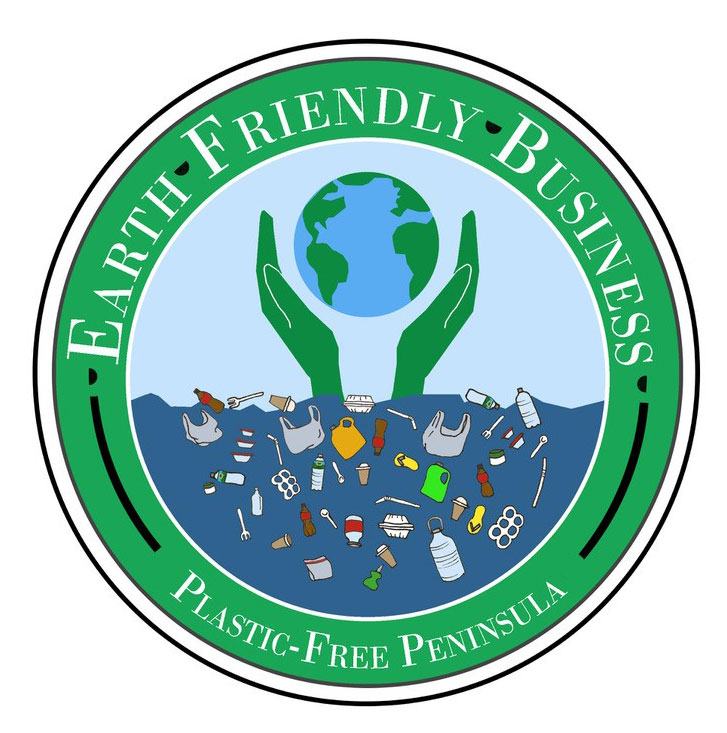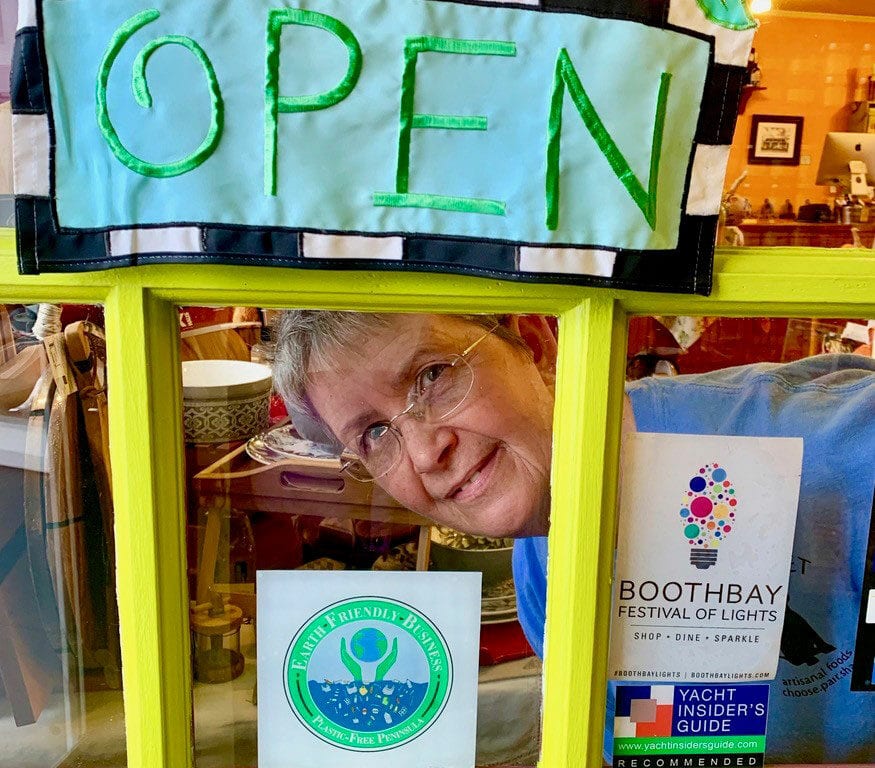With financial assistance from the Natural Resources Council of Maine (NRCM), the Boothbay Region Committee for a Plastic-Free Peninsula (PFP) began our activities in 2019. Our first project aimed to reduce the usage of single-use plastic bags. We decided to focus first on young people and sponsored a table at an annual Earth Day fair in the Boothbay Harbor firehouse. Numerous children joined us during the day to make reusable shopping bags from used, colorful t-shirts, according to the “recipe” given to us by NRCM. We reminded the children—and their moms and dads—that single-use plastic bags will be outlawed by Earth Day, 2020.
During the summer, we worked with local summer camp programs including the Southport and Boothbay Harbor Yacht Club summer camps, the Sea and Science camp program, and the Boothbay Region Land Trust. Our “Don’t Be a Sucker” sticker, which showed an octopus clutching a straw in each of its eight arms, was quite a success! Many campers signed our pledge not to use plastic straws and were given a “Don’t Be a Sucker ” sticker to adhere to their backpacks. We are continuing with this program through the schools and the YMCA.
Next, we developed a plan to survey restaurants in the Boothbay region to measure their willingness to eliminate plastic straws, plastic cutlery and plates, and polystyrene cups from their businesses. Each committee member was assigned a set of restaurants to visit, with the hope of speaking to the manager or owner, asking them to complete the survey, and comment on their plans or current practices in the area of plastic elimination. We tried to visit in the interval between breakfast and lunch or in mid-afternoon before the dinner rush. Those were often times when the owners or managers were not on site, but we learned a lot from the bartenders or other workers who were available.

We were encouraged in many instances because a number of restaurants had already instituted the use of compostable bags and other items. We learned from management or staff about their sources and the cost of various anti-plastic solutions and were able to share this information with other local restaurants. An earth-friendly decal designed by a talented committee member was given to 22 of the 45 restaurants we visited. There are a few likely to receive what we hope is our, by now, coveted decal when they reopen with improved anti-plastic practices this spring.

Our overall objective during PFP’s first year has been to increase public awareness of the upcoming laws banning single-use plastic and polystyrene products. We will continue our efforts in 2020. The Chamber of Commerce has notified its members of our program and several articles have been published in the Boothbay Register, with more in the works.
—Guest post by Doreen Dun










Leave a Reply